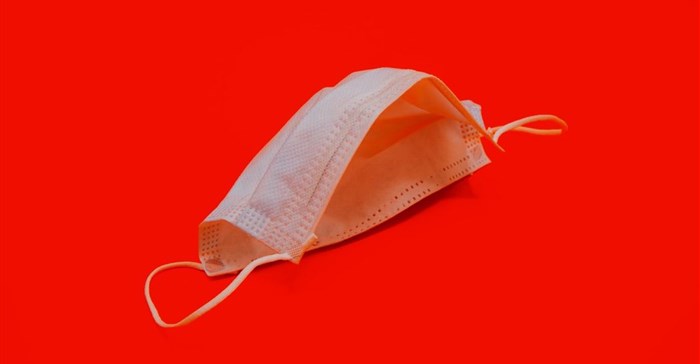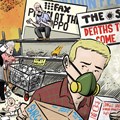Earlier this week President Ramaphosa declared Covid-19 a national state of disaster, and just like that the memes we have been laughing at for the last few weeks become less funny as the country is reminded of the seriousness of the situation. Schools are closing, sports and entertainment events are being cancelled, and gatherings of over 100 people have been prohibited. Companies in SA are allowing staff to work from home, restaurants have closed, and toilet paper and hand sanitiser are in short supply.
One of the scariest things the President said in his speech was the mention of the long-term effects of Covid-19 on our economy. This got us thinking of how this virus is potentially going to affect advertising and media in South Africa.
We asked a few media owners the question “Is Covid-19 affecting your business?” and perhaps not surprisingly, we got a unanimous, “YES!” But not necessarily all bad. We believe that some media platforms (and therefore their advertisers) are going to benefit from all of this, whilst others are not going to fare as well.
One of the platforms that we believe is going to be negatively affected is OOH.
Air travel is being massively impacted by Covid-19 with international travel bans and strong recommendations to avoid domestic travel where possible. As a result, airport media owners will start feeling the pressure as advertisers are not going to be fighting for prime airport real estate any more as passenger numbers decline.
Commuter transport will also, in time, be affected by Covid-19 with a lot less commuters travelling to work as companies start allowing people to work from home. Dwell time in the ranks is currently around 20 minutes, going forward commuter queues will be shorter, with less dwell time, therefore giving advertisers less time to get their messages across. Activations have already started being put on hold making it more and more difficult for advertisers to connect with their audiences.
More people working from home means less people on the roads and therefore less audience for roadside billboards. Less audience means that advertisers may start to see OOH as a less attractive media option for their messaging and so spend might be affected.
Our suggestion is for advertisers to go back to basics. Creative in these spaces is going to have to be clever, eye-catching with engaging content so that messages stand out and get noticed. Use both static and digital sites (although with the resumption of load shedding, perhaps static OOH is a slightly more attractive option at the moment), and buy sites where people are… maybe its street poles and citilites in suburbs now because more and more people are going to be home-based?
And what about radio? If people aren’t commuting to and from the office as much, what will the effect on radio be? Well, when you look at the Rams data of where people claim to be actually listening to the radio, it turns out that listening in-car is not as big as one might have assumed (only 30% according to the latest Rams release). The majority of listening is claimed to be at home, so radio should be largely unaffected. We suggest looking at alternative time channels, however – perhaps mid-morning and early afternoon, outside of drive time, which is typically more expensive. This will make your radio advertising more cost-effective with lower CPMs than in drive time.
With more people staying at home and self-isolating, television is probably one of the platforms best placed to benefit from the effects of Covid-19. TV in SA has been performing well over the past few years and local prime-time programming on SABC and ETV will continue to do well. However, we may well see shoulder time starting to become a more attractive proposition for advertisers as home-bound audiences start to tune in earlier in the day, boosting audiences in what is already a cost-effective time channel.
The broadcaster we do worry most about however is DStv. It is a well-known fact that sport is a primary driver of Dstv subscriptions. However, what the coronavirus has done is effectively shut down all sports world-wide. In the last week alone, we have seen the outright cancellation of Super Rugby, the Two Oceans Marathon, the Cape Epic, the Over-50 Cricket World Cup, the Protea’s tour of India, the IPL, and the Masters Golf in the USA.
We have also seen the postponement of the SA PSL, the English Premier League, Uefa, and Formula 1 (all of these codes are currently holding talks about cancelling out-right). And of course, the fate of the Olympic Games still hangs heavily in the balance. With effectively no sport to broadcast, how are Dstv going to encourage subscribers not to cancel their subscriptions and move across to the likes of Netflix and Amazon Prime?
Which brings us to digital, aside from TV, digital is probably going to be the biggest winner amongst all of the Covid-19 chaos.
News has always been an important driver of online content consumption but we believe that the newsworthiness of Covid-19 will drive increased traffic to news sites like News24, IOL, EWN and the likes. Advertisers targeting news verticals and interest categories can pick up big audiences.
As self-isolation increases, people will turn to social media channels to keep in touch, which will mean an increase in traffic across Facebook, Instagram and Twitter. Online entertainment will also be in high demand which will benefit video content providers such as YouTube and Viu.
With thousands of people staying home, we predict that there will be an uptake in online shopping for fresh goods with the likes of Checkers already grappling with the high demand and inventory issues and a two-hour delay in delivery. Online search advertising may well benefit as more people turn to the web to find out where to buy their goods online, giving a great opportunity for advertisers to target relevant keywords to ensure visibility in this virtual shop window! Some researchers predict that companies who adapt to online trading will be the least impacted by a potential recession.
Whilst we are all home-bound for the foreseeable future, we do believe that we are going to see some interesting shifts in the way people consume media in the short to medium term. It is going to be interesting to see how advertisers navigate this crisis and how we emerge from it on the other side, and whether we see any long-term changes to consumer media behaviour!
Stay safe, remember to wash your hands, and stop buying toilet paper!













































